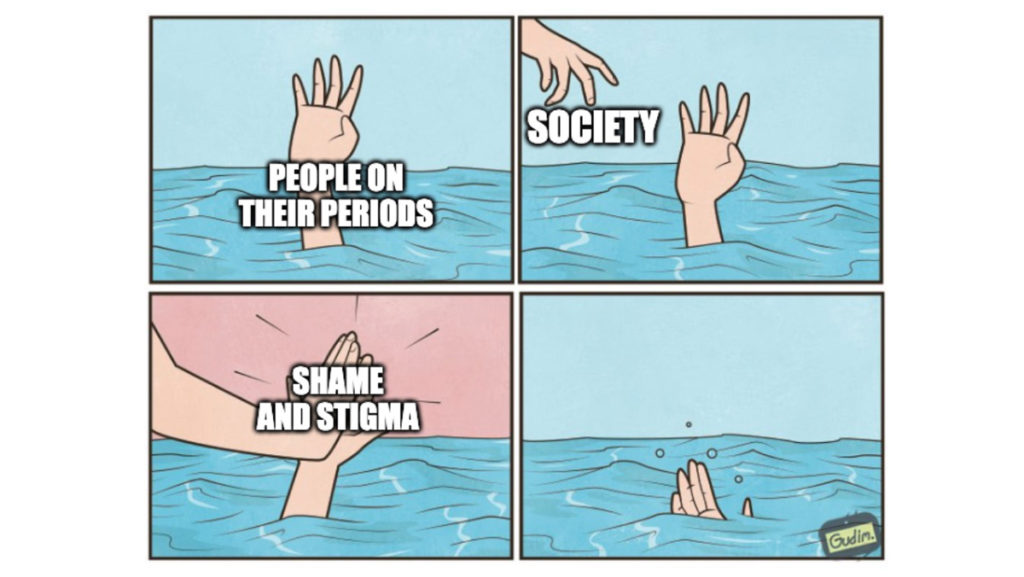Menstruation is viewed as a taboo around the world that stigmatizes people who menstruate and harms their mental and physical health. Societal stigmas — silencing and shaming period talks, criticizing certain period products and isolating menstruators during their periods — on periods not only create shame and hesitation while talking about periods, but have a negative connotation about periods if anyone dares to mention menstruation. By this, society pressures women into cornering a beautiful, natural process and, unfortunately, it starts on a family level. Millions of people who menstruate grow up unfamiliar with the menstruation cycle and experience fear during their first period, which is still followed by little to no information about the cycle and the care methods. When sharing information about menstruation, mothers usually specify only three things: menstrual products, usually pads in many cultures because of the myth that anything inserted in the vagina is harmful; periods being a symbol of marriage and a child; and the need for period secrecy. And this cycle, not the menstrual one, continues through generations. Mothers do not educate their children enough on menstruation because of their parents’ lack of input on the topic, and fathers never even speak or acknowledge the existence of periods.
Men, on the other hand, are typically not introduced to menstruation until they figure it out themselves when they are older. They receive incomplete knowledge about menstruation, usually through their male peers, social media or sometimes from their women friends and partners. If any questions about periods arise for boys at a young age, they are often answered through avoidance — it does not affect them so they will find out when the time comes. The lack of education creates men who are ignorant toward women’s experiences and a society that will not break this cycle.
Women are quiet about their menstruation cycle, not by choice. Women wear pads instead of tampons or other products, not by choice. Women speak negatively about their period experiences, not by choice. Women have little access to menstrual products, not by choice. These are results of a societal taboo on menstruation. The stigma and shame of menstruation must not be silenced. Society must have great knowledge and speak openly about periods. Schools must provide stronger education about menstruation and sex. Parents must inform their children about menstruation, even if the child is non-menstruating. Everyone should openly speak about menstruation with no shame. This will allow people who menstruate to have a choice and not live by chance.














